This article was co-authored by Chris M. Matsko, MD. Dr. Chris M. Matsko is a retired physician based in Pittsburgh, Pennsylvania. With over 25 years of medical research experience, Dr. Matsko was awarded the Pittsburgh Cornell University Leadership Award for Excellence. He holds a BS in Nutritional Science from Cornell University and an MD from the Temple University School of Medicine in 2007. Dr. Matsko earned a Research Writing Certification from the American Medical Writers Association (AMWA) in 2016 and a Medical Writing & Editing Certification from the University of Chicago in 2017.
There are 14 references cited in this article, which can be found at the bottom of the page.
wikiHow marks an article as reader-approved once it receives enough positive feedback. In this case, 90% of readers who voted found the article helpful, earning it our reader-approved status.
This article has been viewed 50,964 times.
Emphysema, a type of chronic obstructive pulmonary disease (COPD), affects millions of Americans.[1] The disease destroys the air sacs that comprise your lung tissue, which reduces lung capacity, giving rise to the hallmark symptom of dyspnea (shortness of breath). Emphysema is a serious condition, which can limit your ability to do certain activities. Emphysema has no cure, but you can treat the symptoms through lifestyle decisions and with a doctor's help.
Steps
Taking Steps at Home
-
1Reduce your exposure to irritants. One of the single biggest steps you can take to prevent emphysema (or slow the progression if you’ve already been diagnosed with the condition) is to stop smoking. Smoking tobacco (or marijuana) subjects the lungs to irritants that have a long-term, detrimental effect on your lungs. Other irritants that can progress the disease include air pollution and manufacturing fumes.[2]
- If you are addicted to tobacco, then you may have much more success in stopping smoking by looking into over-the-counter or prescription cessation medications. You can also make other lifestyle changes that help break your mental addiction to smoking. Find other information about smoking cessation at How to Quit Smoking.
- Ensure that you change your furnace and air conditioner filters regularly to help reduce irritants in your home as well.[3]
-
2Exercise on a routine basis. Begin slowly, but find a regular exercise routine that gets your heart rate up. Exercise can slow the deterioration of your lungs and increase your lung capacity.[4] Try a cardio routine that includes walking, jogging, jumping rope or low-impact options like cycling and water aerobics.[5]
- Don’t push yourself too hard at first since the exercise will make it even harder for you to breathe, especially initially before you begin increasing your lung capacity.
Advertisement -
3Maintain a healthy diet. A healthy weight places less stress on your lungs as you breathe. A healthy weight also makes you less prone to respiratory infections that can complicate your condition. Maintain a healthy diet that avoids simple carbohydrates (sweets) and trans-fats or saturated fats (butter and fried foods).[6]
- Some people living with emphysema have found that diets with more monounsaturated or polyunsaturated fats (the "good" fats) and fewer carbohydrates make it easier to breathe. See a professional dietician before attempting to later your diet in this way.
- You can find more information on developing better eating habits at How to Eat Healthy.
-
4Drink plenty of water. In addition to its other health benefits, drinking plenty of water will help thin the excess mucus associated with emphysema, making it easier to remove.[7] Aim to drink six to eight glasses spread across your entire day as opposed to in a short time period.
-
5Try not to breathe cold air. This will be difficult, especially if you live in areas with cold winters, but frigid air can cause your bronchial passages to spasm, increasing the difficulty of breathing even further. Placing a cold-air mask or even a warm scarf over your mouth before exposing yourself to the cold can help warm the air as you inhale.[8]
-
6Keep up with annual vaccinations. Keeping up with pneumonia and flu shots is especially important since respiratory infections will hit you even harder than those with healthy lungs. Your doctor will advise you on a schedule for pneumonia vaccinations.[9]
- You may also consider wearing a face mask when exposed to large groups of people during cold and flu season to help reduce your risk of infection.
- The 23-valent pneumococcal vaccination is recommended for everyone over the age of 65 and for those who are younger with risk factors that increase their likelihood of getting the infection.
- Flu shots are approved for use in people as young as six months and up. You will need to get a flu shot every season.
-
7Join a support group. Emphysema is a serious condition that will affect your quality of life as it progresses. Trying to maintain your emotional wellbeing and keeping a positive outlook can be just as important as maintaining your physical health. Look online and locally for support groups where you can meet others to discuss treatment options and coping strategies.[10]
- The local chapter of the American Lung Association in your area will also have information regarding support groups.
Seeking Professional Medical Treatments
-
1See your doctor. There is a wide assortment of options available to help treat or slow the progression of emphysema.[11] The first step is to see your doctor who will perform tests to determine your current lung function and help come up with the best treatment plan for you.
-
2Ask about available medications. A few different medication options are available to help relieve symptoms such as wheezing or difficulty breathing. These options include:[12]
- Bronchodilators — Bronchodilators work by dilating your airway muscles, causing them to open and allow more oxygen. This decreases wheezing. There are both short and long acting bronchodilators. Both beta agonist and anticholinergic medications are utilized. Examples include Albuterol, Xopenex, and Atrovent.[13]
- Inhaled Corticosteroids — These work by decreasing the inflammation involved with COPD to help relieve shortness of breath. Studies have shown that inhaled glucocorticoids reduce exacerbations and modestly decrease the progression of respiratory symptoms. Combination treatment with bronchodilators and corticosteroids significantly improves response to therapy and improves outcomes. Examples are Pulmicort (budesonide), Flovent (fluticasone), Aerobid (flunisolide), and Asmanex (mometasone).[14] [15]
- Mucolytics — These drugs (such as Mucomyst) thin mucus, making it easier to cough up. This helps reduce flare ups.[16]
- Oral Steroids — These options work systemically to decrease the inflammation on a systemic level. They are useful in treating COPD exacerbation (flare up complications triggered by pollutants, respiratory infections, etc.), making them an acute option rather than part of your normal regimen.[17]
- For stubborn inflammation, oral theophylline and PDE-4 inhibitors may be used.
-
3Look into a pulmonary rehabilitation regimen. Pulmonary rehabilitation therapy is an important part of managing the disease. Most notably, it includes meetings with a therapist who will teach you better breathing techniques and exercises.[18]
- Breathing techniques include exhaling through pursed lips to slow your breathing and keep your airways open for a longer duration, as well as diaphragmatic (belly) breathing to help strengthen your diaphragm.[19]
- Pulmonary rehab has a cascading effect as well since it helps you maintain an aerobic exercise regimen that will also slow the progression of the condition.[20]
-
4Follow your doctor’s advice regarding nutrition therapy. Since reaching an ideal weight can take time for those who are overweight, your physician will likely suggest advanced steps toward that goal.[21]
- Those with late-stage emphysema often have trouble maintaining an ideal weight due to becoming underweight, so nutrition therapy services are designed to help with both ends of the spectrum.
-
5Ask about oxygen therapy. In the later stages of emphysema, you may find it too difficult to breathe on your own during your worst flare ups. Your physician can prescribe supplemental oxygen in a variety of forms, including tanks that you can use at home.[22] Delivery of the oxygen is typically through a narrow piece of tubing that you place in your nostrils.[23]
- For most patients, you will aim for an oxygen saturation of 88–92%.[24]
- While late stage patients use a supplemental oxygen delivery system twenty-four hours a day, this isn’t the only purpose. Your doctor may simply prescribe a system for you to wear while you run on the treadmill to ensure that you’re maintaining an exercise routine.[25]
-
6Talk to your doctor about surgical options. If other treatment options don’t help control your symptoms, your doctor may recommend surgical options. Surgical options to discuss include:[26]
- Lung-volume reduction surgery (LVRS) — During this procedure, your surgeon will remove small wedges of your damaged lung to help your healthier lung tissue expand and work more effectively. A bullectomy is a similar type of surgery that removes only the malformed tissue structures called “bullae.”
- Lung transplant — Some candidates may qualify for a place on a lung transplant list; however, lung transplants require meeting a range of criteria, not limited to the availability of a lung donor.[27]
Expert Q&A
-
QuestionHow do I repair lung elasticity?
 Chris M. Matsko, MDDr. Chris M. Matsko is a retired physician based in Pittsburgh, Pennsylvania. With over 25 years of medical research experience, Dr. Matsko was awarded the Pittsburgh Cornell University Leadership Award for Excellence. He holds a BS in Nutritional Science from Cornell University and an MD from the Temple University School of Medicine in 2007. Dr. Matsko earned a Research Writing Certification from the American Medical Writers Association (AMWA) in 2016 and a Medical Writing & Editing Certification from the University of Chicago in 2017.
Chris M. Matsko, MDDr. Chris M. Matsko is a retired physician based in Pittsburgh, Pennsylvania. With over 25 years of medical research experience, Dr. Matsko was awarded the Pittsburgh Cornell University Leadership Award for Excellence. He holds a BS in Nutritional Science from Cornell University and an MD from the Temple University School of Medicine in 2007. Dr. Matsko earned a Research Writing Certification from the American Medical Writers Association (AMWA) in 2016 and a Medical Writing & Editing Certification from the University of Chicago in 2017.
Family Medicine Physician After you quit smoking you lungs will begin to heal themselves will get back to as close to normal as possible.
After you quit smoking you lungs will begin to heal themselves will get back to as close to normal as possible. -
QuestionMy wife has emphysema and is on oxygen treatment all the time. She now has come to the stage where breathing is very difficult. Her hands turn blue and does not speak very often, and when she does it's very soft an slurred. What can I to do for her?
 Chris M. Matsko, MDDr. Chris M. Matsko is a retired physician based in Pittsburgh, Pennsylvania. With over 25 years of medical research experience, Dr. Matsko was awarded the Pittsburgh Cornell University Leadership Award for Excellence. He holds a BS in Nutritional Science from Cornell University and an MD from the Temple University School of Medicine in 2007. Dr. Matsko earned a Research Writing Certification from the American Medical Writers Association (AMWA) in 2016 and a Medical Writing & Editing Certification from the University of Chicago in 2017.
Chris M. Matsko, MDDr. Chris M. Matsko is a retired physician based in Pittsburgh, Pennsylvania. With over 25 years of medical research experience, Dr. Matsko was awarded the Pittsburgh Cornell University Leadership Award for Excellence. He holds a BS in Nutritional Science from Cornell University and an MD from the Temple University School of Medicine in 2007. Dr. Matsko earned a Research Writing Certification from the American Medical Writers Association (AMWA) in 2016 and a Medical Writing & Editing Certification from the University of Chicago in 2017.
Family Medicine Physician There is very little that you can do for her. You might want to see a pulmonologist or cardiologist to see if there is other pathology going on in her lungs like pulmonary hypertension.
There is very little that you can do for her. You might want to see a pulmonologist or cardiologist to see if there is other pathology going on in her lungs like pulmonary hypertension.
Warnings
- If you suffer from gastroesophageal reflux disease (GERD), this will aggravate emphysema if it's not treated with medication and lifestyle changes. Ensure that you coordinate with your physician about the best treatment plan for combating both conditions.⧼thumbs_response⧽
- See your doctor immediately if you feel like you have contracted a bacterial infection. Antibiotics need to be prescribed to treat infections, such as bronchitis or pneumonia.⧼thumbs_response⧽
- While this article provides medical information pertaining to the treatment of emphysema, it should not be taken as medical advice. If you believe you have symptoms of emphysema, you should see your doctor who will help you form the best care plan for you.⧼thumbs_response⧽
- Long-term use of inhaled corticosteroids can result in weakened bones and higher risks of high blood pressure, diabetes, and cataracts. Use only as directed by your doctor.⧼thumbs_response⧽
References
- ↑ http://www.cdc.gov/nchs/fastats/copd.htm
- ↑ http://www.mayoclinic.org/diseases-conditions/emphysema/basics/causes/con-20014218
- ↑ http://www.mayoclinic.org/diseases-conditions/emphysema/basics/lifestyle-home-remedies/con-20014218
- ↑ http://www.mayoclinic.org/diseases-conditions/emphysema/basics/lifestyle-home-remedies/con-20014218
- ↑ http://my.clevelandclinic.org/health/diseases_conditions/hic_Understanding_COPD/hic_Coping_with_COPD/hic_COPD_Exercise_and_Activity_Guidelines
- ↑ http://www.lung.org/lung-disease/copd/living-with-copd/nutrition.html
- ↑ http://www.lung.org/lung-disease/copd/living-with-copd/nutrition.html
- ↑ http://www.mayoclinic.org/diseases-conditions/emphysema/basics/lifestyle-home-remedies/con-20014218
- ↑ http://www.mayoclinic.org/diseases-conditions/emphysema/basics/lifestyle-home-remedies/con-20014218
- ↑ http://www.mayoclinic.org/diseases-conditions/emphysema/basics/coping-support/con-20014218
- ↑ http://www.ucsfhealth.org/conditions/emphysema/treatment.html
- ↑ http://www.ucsfhealth.org/conditions/emphysema/treatment.html
- ↑ Ann Everson, Management of COPD Exacerbations 2010 1 8 (5) 6-7-613
- ↑ Medscape: Inhaled corticosteroids for treatment of COPD.
- ↑ http://www.mayoclinic.org/diseases-conditions/emphysema/basics/treatment/con-20014218
- ↑ http://www.ncbi.nlm.nih.gov/pmc/articles/PMC2706615/
- ↑ Ann Everson, Management of COPD Exacerbations 2010 1 8 (5) 6-7-613
- ↑ http://www.ucsfhealth.org/conditions/emphysema/treatment.html
- ↑ http://www.copdfoundation.org/What-is-COPD/Living-with-COPD/Breathing-Techniques.aspx
- ↑ http://www.copdfoundation.org/What-is-COPD/Living-with-COPD/Breathing-Techniques.aspx
- ↑ http://www.mayoclinic.org/diseases-conditions/emphysema/basics/treatment/con-20014218
- ↑ http://www.ucsfhealth.org/conditions/emphysema/treatment.html
- ↑ http://www.mayoclinic.org/diseases-conditions/emphysema/basics/treatment/con-20014218
- ↑ http://patient.info/doctor/use-of-oxygen-therapy-in-copd
- ↑ http://www.mayoclinic.org/diseases-conditions/emphysema/basics/treatment/con-20014218
- ↑ http://www.mayoclinic.org/diseases-conditions/emphysema/basics/treatment/con-20014218
- ↑ http://www.ucsfhealth.org/conditions/lung_transplant/index.html
About This Article
To treat emphysema, which is a disease that damages your lung tissue, you should first visit your doctor, who will prescribe medication and offer advice about other therapies. While you’re undergoing medical treatment, try to commit to a regular cardio routine, including walking, jogging, cycling, or swimming, since light exercise can slow the deterioration of your lungs and increase your lung capacity. You should also drink 6 to 8 glasses of water throughout the day, which helps thin excess mucus that makes it harder to breathe. If you smoke, you should also take steps to cut down and quit, since smoking can irritate and damage your lungs further. For more tips from our Medical co-author, including how to reduce stress on your lungs by eating a healthy diet, read on!
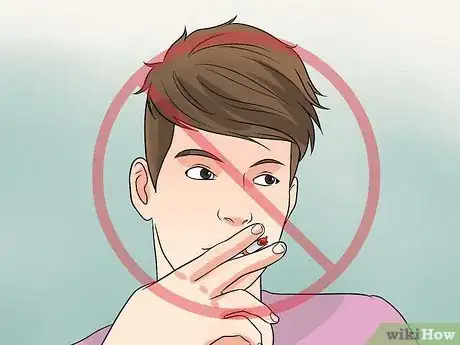
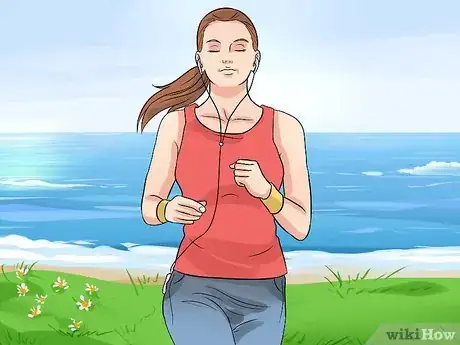
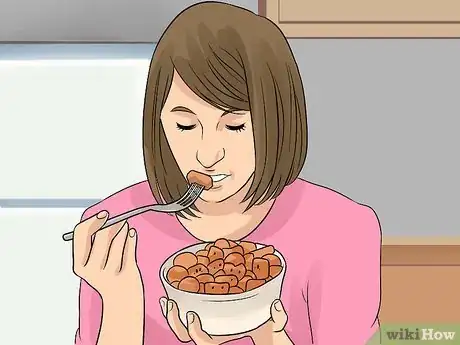
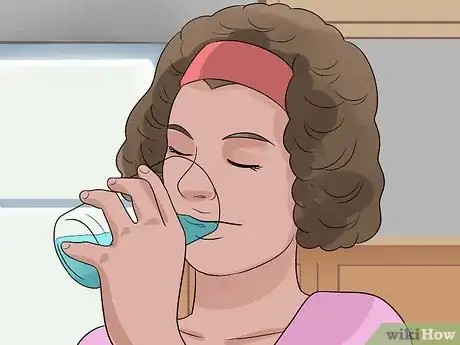
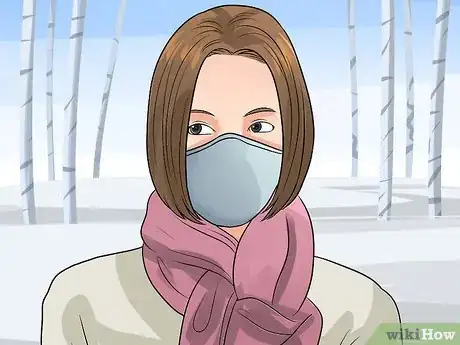
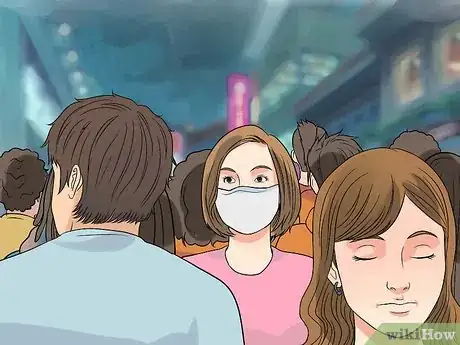
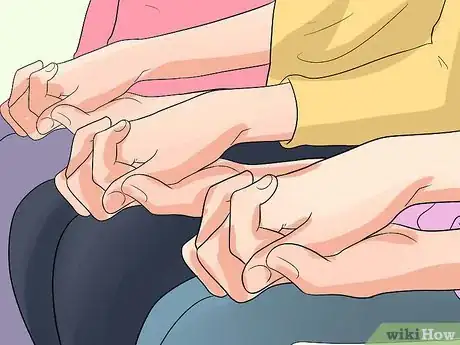
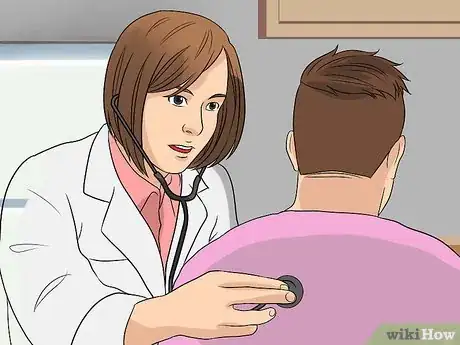
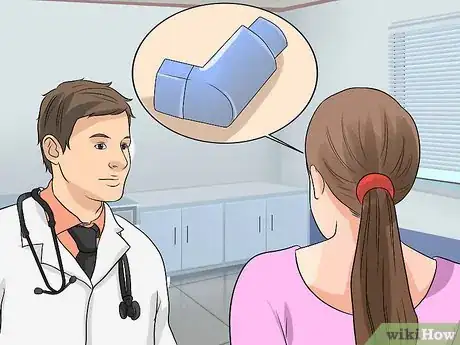
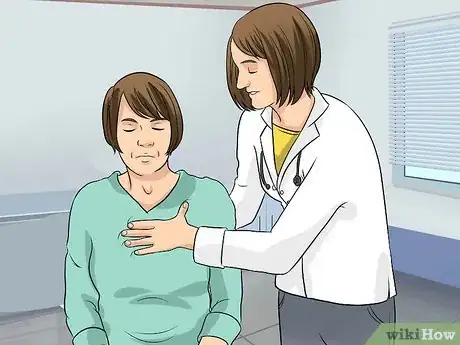
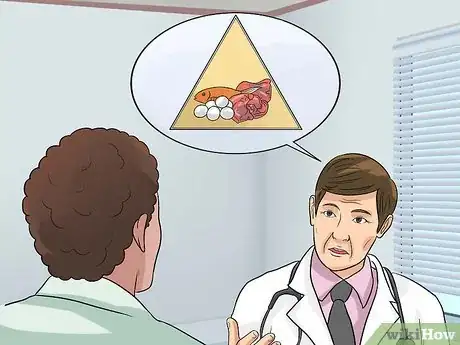
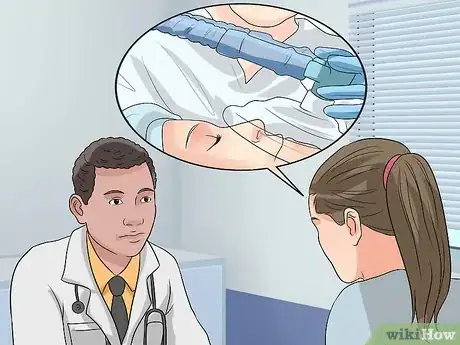
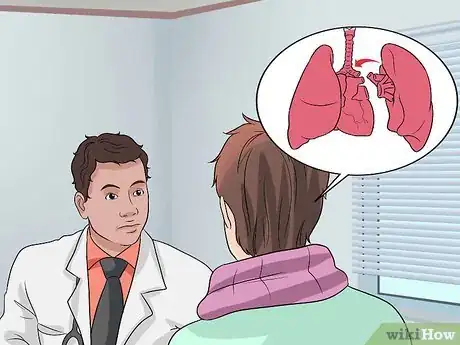
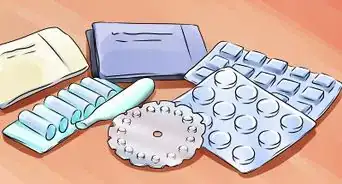


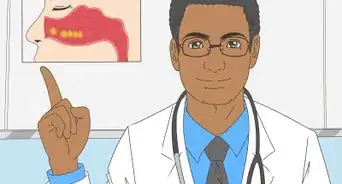

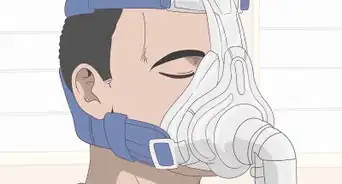
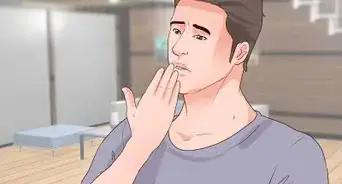
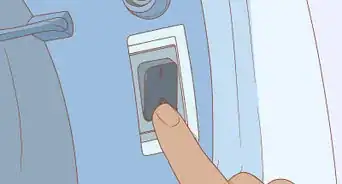

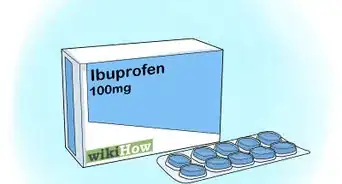
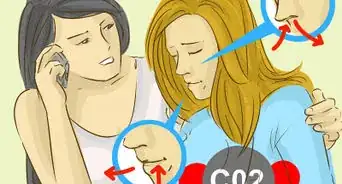
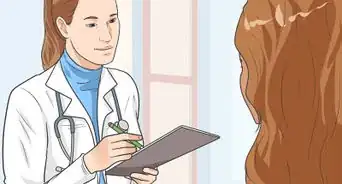

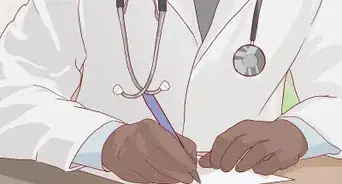











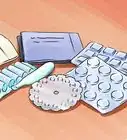


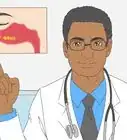



































Medical Disclaimer
The content of this article is not intended to be a substitute for professional medical advice, examination, diagnosis, or treatment. You should always contact your doctor or other qualified healthcare professional before starting, changing, or stopping any kind of health treatment.
Read More...